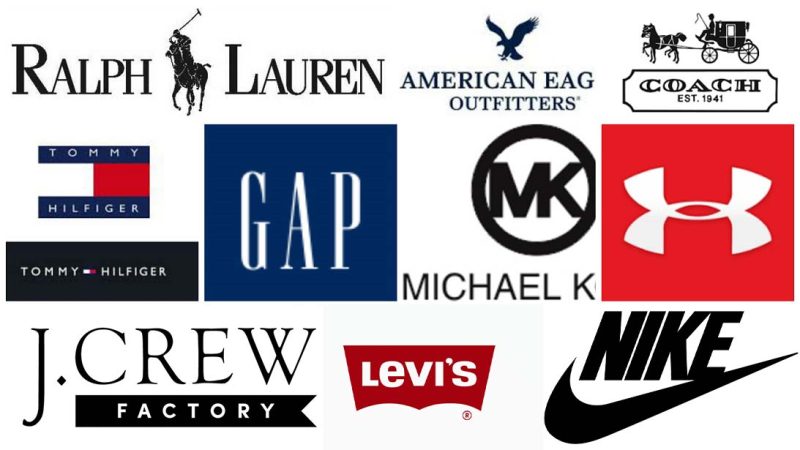In the world of retail and consumer goods, manufacturer brands play a significant role in shaping customer trust, loyalty, and purchasing decisions. From household names like Nike and Coca-Cola to tech giants like Samsung, these brands are created, owned, and marketed by manufacturers themselves.
But what exactly are manufacturer brands, and how do they differ from other types of brands, such as private labels? In this article, we’ll break down the concept, explore its advantages, and provide examples of how these brands dominate the market.
What Are Manufacturer Brands?
A manufacturer brand is a product that is designed, produced, and marketed by the manufacturer itself, carrying the company’s name or a name they’ve trademarked. These brands are often synonymous with quality and are distributed widely across various retail outlets.
Key Characteristics of Manufacturer Brands:
- Ownership: Created and owned by the manufacturer.
- Wide Distribution: Sold in multiple retail locations and online platforms.
- Brand Recognition: Often supported by significant marketing and advertising efforts.
- Higher Price Point: Typically priced higher than private labels due to branding and perceived quality.
Examples of Manufacturer Brands
Nike
Nike manufactures and markets its own athletic wear, footwear, and accessories. Its global branding and marketing strategies have made it a leader in the sportswear industry.
Apple
Apple designs, manufactures, and markets its own line of technology products, such as iPhones, MacBooks, and Apple Watches.
Coca-Cola
A beverage manufacturer that markets its iconic Coca-Cola brand along with a variety of other drinks.
Samsung
Samsung produces and markets electronics, including smartphones, TVs, and home appliances, under its own name.
Toyota
Toyota manufactures and sells vehicles globally under its brand name, synonymous with quality and reliability.
How Do Manufacturer Brands Differ from Private Labels?
Manufacturer Brands:
- Owned and marketed by the company that produces the product.
- Distributed widely across various retailers.
- Heavily marketed to build brand recognition.
Private Labels (Store Brands):
- Owned by retailers but produced by third-party manufacturers.
- Exclusively sold in the retailer’s stores.
- Typically positioned as a lower-cost alternative.
Example Comparison:
- Manufacturer Brand: Tide (produced and marketed by Procter & Gamble).
- Private Label: Kirkland Signature Laundry Detergent (Costco’s in-house brand).
Benefits of Manufacturer Brands
Brand Trust and Recognition
Manufacturer brands invest heavily in building their reputation, leading to strong consumer trust and loyalty.
- Example: Consumers often associate Coca-Cola with quality and consistency due to its strong branding.
Wider Market Reach
Unlike private labels, manufacturer brands are sold across various retail outlets, increasing visibility and sales potential.
Innovation and Quality
Manufacturers invest in research and development to offer innovative products, ensuring they stay competitive in the market.
- Example: Apple continuously updates its product lineup with cutting-edge technology.
Strong Marketing Support
Manufacturer brands benefit from large-scale advertising campaigns, endorsements, and sponsorships that boost brand visibility.
Premium Positioning
These brands often command higher price points due to their perceived quality and reliability.
Challenges of Manufacturer Brands
Higher Costs
Manufacturer brands require significant investment in production, marketing, and distribution.
Competition from Private Labels
Private labels often compete on price, forcing manufacturer brands to justify their higher cost through quality and innovation.
Brand Vulnerability
Negative publicity or product failures can damage the reputation of a manufacturer brand more than it would a private label.
How Businesses Use Manufacturer Brands
Businesses rely on manufacturer brands to drive revenue and build customer loyalty. Retailers often dedicate premium shelf space to these products due to their high demand and proven track record.
Strategies for Success:
- Product Differentiation: Offering unique features or superior quality.
- Effective Advertising: Engaging campaigns that resonate with the target audience.
- Consistent Innovation: Staying ahead of competitors with new and improved products.
Conclusion
Manufacturer brands are a cornerstone of the global economy, driving innovation, quality, and consumer trust. From the technology industry to consumer goods, these brands dominate the market with their strong branding, wide distribution, and commitment to excellence.
Understanding the role of manufacturer brands and their benefits can help consumers make informed choices and businesses craft better strategies for growth.
Interested in creating a manufacturer brand for your business? Start by focusing on quality, innovation, and marketing to build trust with your target audience!
FAQs
1. What is a manufacturer brand?
A manufacturer brand is a product created, marketed, and sold by the company that produces it, such as Nike or Apple.
2. How do manufacturer brands differ from private labels?
Manufacturer brands are owned by producers and sold widely, while private labels are owned by retailers and sold exclusively in their stores.
3. Why do consumers prefer manufacturer brands?
Manufacturer brands are often associated with quality, trust, and innovation, making them a preferred choice for many consumers.
4. Are manufacturer brands more expensive?
Yes, they typically cost more due to branding, marketing, and perceived quality.
5. Can small businesses have manufacturer brands?
Yes, small businesses can create their own manufacturer brands by producing and marketing their products under a unique name.
Also read: What Are the Questions for Franchise Opportunities? A Comprehensive Guide









